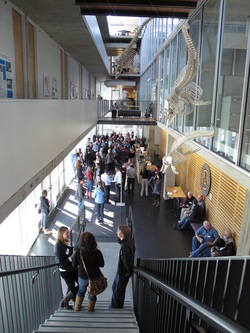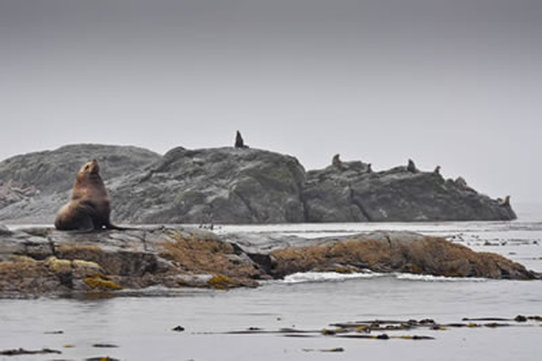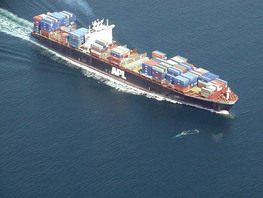
This year there were a variety of talks ranging from cetacean energetics and foraging behaviour, to the hybridization of cetaceans and acoustic monitoring for fin whales. From the "coolness" of Hawaiian monk seals to the fine scale data acquired from tags on the foraging behaviour of northern fur seals in the Bering Sea. The conflicts between marine mammals and fisheries were also covered. The meeting also allows for research groups at the DFO, BC Marine Mammal Sightings network and Cetus (a non-profit group that run both the Straitwatch boater education program and the Robson Bight Killer Whale Reserve warden program) to give updates on the summer season's work. These presentations allow the members of the audience to see firsthand how their own efforts are contributing to research, education and conversation of marine mammals both in BC and on occasion further afield.
Meetings such as this provide a great opportunity to meet, network, learn and discuss issues pertinent to the local marine mammal interest community. And last but not least, the friendly atmosphere provides a really good opportunity to practice your presentation skills!!





 RSS Feed
RSS Feed